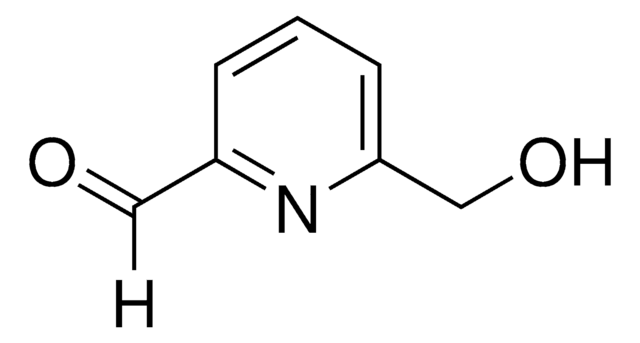345547
Chlorwasserstoff -Lösung
4.0 M in dioxane
About This Item
Empfohlene Produkte
Form
liquid
Qualitätsniveau
Konzentration
3.80-4.40 M (by NaOH, titration)
4.0 M in dioxane
Dichte
1.05 g/mL at 25 °C
SMILES String
Cl
InChI
1S/ClH/h1H
InChIKey
VEXZGXHMUGYJMC-UHFFFAOYSA-N
Suchen Sie nach ähnlichen Produkten? Aufrufen Leitfaden zum Produktvergleich
Verwandte Kategorien
Allgemeine Beschreibung
Anwendung
- Als Reagens für die Entschützung der N-Boc-Schutzgruppe verschiedener heterocyclischer Derivate.
- Als Reagens für die Entschützung von Polymer-Schutzgruppen, zum Beispiel Entschützung von Benzylether-geschütztem Polymer.
- Als Polymerisationsinitiator in Kombination mit ZnCl2 bei der Synthese von formyl-terminiertem Poly(Ethylvinylether) aus Ethylvinylether (EVE).
Signalwort
Danger
Gefahreneinstufungen
Carc. 1B - Eye Irrit. 2 - Flam. Liq. 2 - Met. Corr. 1 - Skin Irrit. 2 - STOT SE 3
Zielorgane
Respiratory system
Zusätzliche Gefahrenhinweise
Lagerklassenschlüssel
3 - Flammable liquids
WGK
WGK 3
Flammpunkt (°F)
62.6 °F - closed cup
Flammpunkt (°C)
17 °C - closed cup
Zulassungslistungen
Zulassungslistungen werden hauptsächlich für chemische Produkte erstellt. Für nicht-chemische Produkte können hier nur begrenzte Angaben gemacht werden. Kein Eintrag bedeutet, dass keine der Komponenten gelistet ist. Es liegt in der Verantwortung des Benutzers, die sichere und legale Verwendung des Produkts zu gewährleisten.
EU REACH SVHC Candidate List
EU REACH Annex XVII (Restriction List)
Analysenzertifikate (COA)
Suchen Sie nach Analysenzertifikate (COA), indem Sie die Lot-/Chargennummer des Produkts eingeben. Lot- und Chargennummern sind auf dem Produktetikett hinter den Wörtern ‘Lot’ oder ‘Batch’ (Lot oder Charge) zu finden.
Besitzen Sie dieses Produkt bereits?
In der Dokumentenbibliothek finden Sie die Dokumentation zu den Produkten, die Sie kürzlich erworben haben.
Kunden haben sich ebenfalls angesehen
Unser Team von Wissenschaftlern verfügt über Erfahrung in allen Forschungsbereichen einschließlich Life Science, Materialwissenschaften, chemischer Synthese, Chromatographie, Analytik und vielen mehr..
Setzen Sie sich mit dem technischen Dienst in Verbindung.




